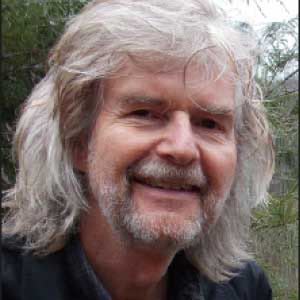“Earth is telling us a terrifying story.”
Acclaimed science journalist, author and playwright Alanna Mitchell pulled no punches as she spelled out the impact of rising carbon emissions at a Church of the Redeemer, Bloor St. “EarthSong” celebration of the natural world, held on Oct. 1. The event was the first in a month-long Season of Creation series held at the Toronto parish and was organized by its Creation Matters team. It attracted 75 people in person as well as others who watched it on YouTube.
The event wove together a creative blend of scripture readings, poetry and music ranging from traditional hymns to songs by musicians such as Marvin Gaye and the band Tears for Fears, all of it focused around the Earth and its elements.
Ms. Mitchell is a Christian and veteran journalist who has written for The New York Times and The Globe and Mail. Her book about the alarming state of the world’s oceans, Sea Sick: The Global Ocean in Crisis, became an international bestseller, then was transformed into a play performed by Ms. Mitchell to audiences around the world.

“We are at an unusual moment in our history,” she warned. “We’re putting carbon into the atmosphere faster than at any known time in the planet’s history. That carbon is throwing things out of sync. It’s not just that it’s gotten hotter. Or that the seasons have slid into forgetfulness about what they’re supposed to do. It’s not just the floods and the wildfires and the weird rains that flow down from the heavens like rivers. The real story is that all these disruptions are just the start of what’s to come if we don’t rein in our carbon emissions. I hear people talk about this ‘new normal’ that we’re in. This is not the new normal. Earth is just giving us a little taste of what’s to come. This is one little step on the way to a much more anarchic future whose rules we can’t even imagine, except that it will be unlikely to support life as we know it. I wish I were exaggerating. I am not.”
Ms. Mitchell’s talk was sobering at times, as she laid out basic facts about what she called the greatest challenge in human history. Yet she firmly rejected the idea that that it’s too late for us to heal our ailing planet. She noted that Canada has pledged to reduce its carbon emissions by 40 to 45 per cent, from the 2005 levels, by 2030. So far, a 6.4 per cent reduction has been reached, showing that some progress has been made, albeit not nearly enough. Emissions from producing electricity have dropped by more than half since 2005. However, oil and gas emissions are up more than 15 per cent.
We can listen to the voice of creation around four key elements, she noted, reflecting an ancient script familiar to people of faith: delighting in what the Earth offers us; lamenting what has gone wrong; moving beyond grief to heed the Earth’s call for healing; and finally, dedicating ourselves to act for the creation.
She recalled that at a recent gathering she attended of leading artists and activists from around the world, acclaimed Indian novelist Amitav Ghosh was asked if there was a shortcut to bring humanity back from the brink of climate chaos. His answer shocked the audience: “Plug into the communities of faith all around the world. They are already organized. They communicate with others. They tend to be interested in thinking about things bigger than their own lives.”
Ms. Mitchell told the Redeemer gathering, “He was talking about people like you. He was urging you not to give up, to believe in your own power. We people of faith know the power of story. We can write a new ending to this story. We can write a new narrative – a parable – to tell us what’s going on, based on love, joy, hope, possibility, success. It’s the one Moses’ people must have written thousands of years ago to let them follow him out of Egypt and out of the desert and into the promised land.”
In response to a question she’s often asked after performing her play – what should I do? – Ms. Mitchell says she flips the question around, challenging people to think about the gifts they have that can be put into action in response to the climate crisis.



Let’s bring back the offertory plate